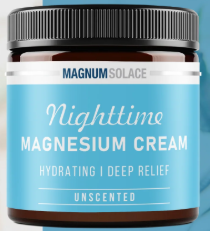The Role of Magnesium in Managing Anxiety
- Rebecca Nolan Harris, PhD

- Jun 10, 2025
- 3 min read
Updated: Aug 7, 2025
Anxiety is a common mental health issue affecting millions of people worldwide. While various treatments are available, including therapy and medication, many individuals are turning to nutritional approaches to help manage their symptoms. One essential mineral that has garnered attention for its potential role in anxiety management is magnesium.
Understanding Magnesium's Role in Mental Health
Magnesium is a vital mineral involved in numerous biochemical processes in the body. It plays a crucial role in muscle and nerve function, blood glucose control, and blood pressure regulation. It is also essential for the synthesis of DNA, RNA, and proteins. Despite its importance, many people do not get enough magnesium from their diets, which can lead to a host of health issues, including anxiety.
The Connection Between Magnesium and Anxiety
Research suggests that magnesium may have a direct impact on mental health and anxiety levels. Here are several ways in which magnesium can influence anxiety:
Regulating Neurotransmitters: Magnesium is involved in the regulation of neurotransmitters, which are chemicals that transmit signals in the brain. Specifically, it helps control the release of serotonin, often referred to as the "feel-good" hormone. Low levels of serotonin are linked to anxiety and depression, making magnesium crucial for maintaining emotional balance.
Cortisol Regulation: Magnesium plays a role in regulating cortisol, the body's primary stress hormone. High levels of cortisol can lead to increased anxiety and stress. By helping to keep cortisol levels in check, magnesium may contribute to a reduction in anxiety symptoms.
Enhancing GABA Activity: Gamma-aminobutyric acid (GABA) is an inhibitory neurotransmitter that helps calm the nervous system. Magnesium has been shown to enhance GABA activity, promoting relaxation and reducing feelings of anxiety.
Reducing Inflammation: Chronic inflammation has been linked to various mental health disorders, including anxiety. Magnesium has anti-inflammatory properties that may help reduce inflammation in the body, potentially alleviating anxiety symptoms.
Float Therapy Increases Magnesium and Calms the Nervous System
Float therapy, also known as sensory deprivation therapy, involves floating in a warm, buoyant solution of Epsom salt and water. This creates a unique environment that promotes deep relaxation and stress relief. This tranquil experience not only helps to calm the mind but also enhances the body's absorption of magnesium through the skin. Magnesium is known for its calming effects on the nervous system and its ability to regulate neurotransmitters associated with mood and anxiety. By combining float therapy with the increased magnesium absorption from Epsom salt, individuals may find a powerful ally in their quest for anxiety relief. The soothing environment fosters both physical relaxation and emotional balance, allowing for a profound sense of well-being.
Dietary Sources of Magnesium
Incorporating magnesium-rich foods into your diet can help improve your magnesium levels and support mental health. Some excellent sources of magnesium include:
Leafy green vegetables (e.g., spinach, kale)
Nuts and seeds (e.g., almonds, pumpkin seeds)
Whole grains (e.g., quinoa, brown rice)
Legumes (e.g., black beans, chickpeas)
Dark chocolate (at least 70% cocoa)
Magnesium Supplements
While it’s always best to obtain nutrients through whole foods, magnesium supplements can be helpful for those who struggle to meet their daily requirements through diet alone. Common forms of magnesium supplements include magnesium citrate, magnesium glycinate, and magnesium oxide. However, it’s essential to consult with a healthcare provider before starting any supplementation, as excessive magnesium intake can lead to adverse effects.
We have a variety of magnesium products available at Kairos. Not sure what's best for you? Ask, and we will help you select the best products to meet your needs.
Conclusion
Magnesium plays a vital role in maintaining mental health, particularly in managing anxiety. By ensuring you have adequate magnesium levels through diet or supplementation, you may find an effective way to support your mental well-being. However, it's important to remember that magnesium is just one piece of the puzzle. For those struggling with anxiety, a comprehensive approach that includes therapy, lifestyle changes, and possibly medication may be necessary.
If you’re experiencing anxiety, consider discussing magnesium and other nutritional strategies with a healthcare provider to develop a plan that works for you. Embracing a holistic approach to mental health can lead to improved overall well-being and a more balanced life.









Comments